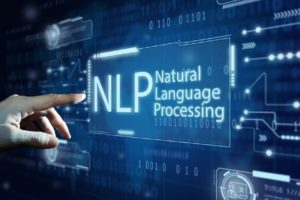In an increasingly interconnected world, businesses are no longer confined to local markets. For companies aiming to expand their reach globally, localization is key. However, the real challenge lies not just in translation but in ensuring those translations resonate with the target audience—accurately, contextually, and culturally. This is where Localization Quality Assurance (LQA) becomes indispensable.
Localization experts know that LQA goes far beyond just “checking translations.” It ensures that the localized content doesn’t just speak the right language but communicates the right message, aligns with cultural expectations, and enhances the user experience across regions.
Elevating LQA from a Task to a Strategy
For localization professionals, LQA is not a final step but an ongoing strategic layer in the localization workflow. It demands a blend of linguistic precision, cultural insight, and technical acumen. Here’s how to elevate your LQA process to meet the demands of complex global markets:
Cultural Sensitivity: Go Beyond Words
While most think LQA revolves around grammatical accuracy, its broader role is ensuring that content is culturally relevant. This means adapting idioms, imagery, and even tone. For example, color meanings can differ greatly across cultures, and what works in one region might be inappropriate in another. LQA should vet these elements, ensuring no cultural faux pas slip through the cracks.
Localization professionals can take this one step further by leveraging cultural consultants who live and breathe the nuances of specific markets. Not only do they validate language accuracy, but they also provide insight into local customs, legal requirements, and even political climates, helping content avoid potential landmines.
Terminology Consistency: A Non-Negotiable Standard
Building and maintaining a comprehensive glossary and style guide is foundational to any successful LQA process. But here’s where localization pros can shine: ensuring these resources are dynamic. Industries evolve rapidly, and your glossary should too. Continuous updates, especially for technical fields, reflect industry developments and ensure relevance.
Moreover, integrating AI-powered terminology management tools can streamline this process, flagging inconsistencies in real time and reducing manual effort. The result? A seamless linguistic experience across all touchpoints.
Functional and Linguistic Testing: Think Holistically
LQA shouldn’t stop at linguistic accuracy. For localization experts, it’s crucial to think about the technical performance of localized content. This includes ensuring that the text fits within UI designs (avoiding truncations or misalignments), as well as testing hyperlinks, multimedia, and interactive elements that may behave differently across languages or regions.
By conducting in-context reviews, LQA can simulate real-world scenarios, validating not just the text but the overall user experience. In this stage, localization testers should use localized software and devices, mimicking the end-user environment as closely as possible.
Leveraging Automation and AI in LQA
Advanced LQA is increasingly aided by automation and AI-driven tools. These technologies can enhance productivity by automating repetitive tasks such as spell-checking, grammar verification, and consistency checks. For localization experts, this frees up valuable time to focus on the more nuanced elements of localization, such as idiomatic expressions and cultural resonance.
However, it’s important to balance automation with the human touch. While AI can catch errors, it can’t yet replace the cultural and emotional intelligence a seasoned localization expert brings to the table.
Customizing LQA for Niche Markets
As more companies enter highly specialized sectors (think biotech, fintech, or even regional e-commerce), industry-specific localization becomes paramount. Here, the LQA process must align with specialized terminologies, legal constraints, and hyper-local preferences. This customization requires localization teams to collaborate closely with subject-matter experts (SMEs) to ensure translations not only meet linguistic expectations but also comply with regulatory standards and niche market preferences.
Precision in LQA Equals Global Success
For localization professionals, LQA is not just a box to tick; it’s an essential component of ensuring the success of your global strategy. By integrating cultural insights, ensuring terminology consistency, combining linguistic and functional testing, and leveraging automation, LQA evolves from a quality checkpoint to a strategic differentiator.
Ultimately, flawless localization—underpinned by rigorous LQA—leads to increased customer trust, smoother market entry, and a stronger global presence. With the right blend of tools, expertise, and innovation, LQA can turn good translations into great user experiences.








